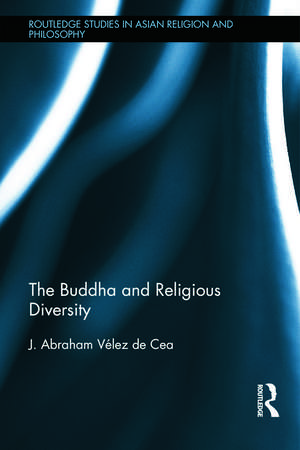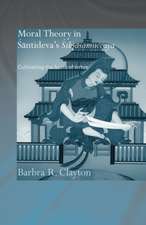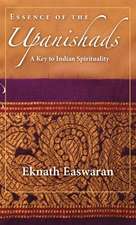The Buddha and Religious Diversity: Routledge Studies in Asian Religion and Philosophy
Autor J. Abraham Velez de Ceaen Limba Engleză Hardback – 12 dec 2012
Examining the complexity and uniqueness of Buddha’s approach to religious pluralism using four main categories – namely exclusivism, inclusivism, pluralistic-inclusivism and pluralism – the book proposes a cross-cultural and interreligious interpretation of each category, thus avoiding the accusation of intellectual colonialism. The key argument is that, unlike the Buddha, most Buddhist traditions today, including Theravāda Buddhism and even the Dalai Lama, consider liberation and the highest stages of spiritual development exclusive to Buddhism. The book suggests that the Buddha rejects many doctrines and practices found in other traditions, and that, for him, there are nonnegotiable ethical and doctrinal standards that correspond to the Dharma. This argument is controversial and likely to ignite a debate among Buddhists from different traditions, especially between conservative and progressive Buddhists.
The book fruitfully contributes to the literature on inter-religious dialogue, and is of use to students and scholars of Asian Studies, World Religion and Eastern Philosophy.
| Toate formatele și edițiile | Preț | Express |
|---|---|---|
| Paperback (1) | 299.52 lei 6-8 săpt. | |
| Taylor & Francis – 31 mai 2017 | 299.52 lei 6-8 săpt. | |
| Hardback (1) | 823.44 lei 6-8 săpt. | |
| Taylor & Francis – 12 dec 2012 | 823.44 lei 6-8 săpt. |
Din seria Routledge Studies in Asian Religion and Philosophy
-
 Preț: 370.28 lei
Preț: 370.28 lei -
 Preț: 341.32 lei
Preț: 341.32 lei -
 Preț: 389.66 lei
Preț: 389.66 lei -
 Preț: 385.41 lei
Preț: 385.41 lei -
 Preț: 436.14 lei
Preț: 436.14 lei -
 Preț: 416.22 lei
Preț: 416.22 lei -
 Preț: 389.66 lei
Preț: 389.66 lei -
 Preț: 383.63 lei
Preț: 383.63 lei -
 Preț: 484.04 lei
Preț: 484.04 lei -
 Preț: 436.14 lei
Preț: 436.14 lei -
 Preț: 428.85 lei
Preț: 428.85 lei -
 Preț: 389.38 lei
Preț: 389.38 lei - 26%
 Preț: 819.67 lei
Preț: 819.67 lei -
 Preț: 384.27 lei
Preț: 384.27 lei - 18%
 Preț: 1000.27 lei
Preț: 1000.27 lei -
 Preț: 405.95 lei
Preț: 405.95 lei - 18%
 Preț: 1003.43 lei
Preț: 1003.43 lei - 13%
 Preț: 338.33 lei
Preț: 338.33 lei - 12%
 Preț: 299.52 lei
Preț: 299.52 lei -
 Preț: 418.22 lei
Preț: 418.22 lei - 12%
 Preț: 299.52 lei
Preț: 299.52 lei - 48%
 Preț: 571.48 lei
Preț: 571.48 lei - 16%
 Preț: 272.83 lei
Preț: 272.83 lei -
 Preț: 389.38 lei
Preț: 389.38 lei -
 Preț: 415.24 lei
Preț: 415.24 lei - 18%
 Preț: 1057.09 lei
Preț: 1057.09 lei - 18%
 Preț: 1000.27 lei
Preț: 1000.27 lei - 13%
 Preț: 310.28 lei
Preț: 310.28 lei - 18%
 Preț: 1005.39 lei
Preț: 1005.39 lei - 18%
 Preț: 1000.27 lei
Preț: 1000.27 lei
Preț: 823.44 lei
Preț vechi: 1104.85 lei
-25% Nou
Puncte Express: 1235
Preț estimativ în valută:
157.59€ • 164.09$ • 133.18£
157.59€ • 164.09$ • 133.18£
Carte tipărită la comandă
Livrare economică 10-24 martie
Preluare comenzi: 021 569.72.76
Specificații
ISBN-13: 9780415639729
ISBN-10: 0415639727
Pagini: 264
Dimensiuni: 156 x 234 x 20 mm
Greutate: 0.65 kg
Ediția:New.
Editura: Taylor & Francis
Colecția Routledge
Seria Routledge Studies in Asian Religion and Philosophy
Locul publicării:Oxford, United Kingdom
ISBN-10: 0415639727
Pagini: 264
Dimensiuni: 156 x 234 x 20 mm
Greutate: 0.65 kg
Ediția:New.
Editura: Taylor & Francis
Colecția Routledge
Seria Routledge Studies in Asian Religion and Philosophy
Locul publicării:Oxford, United Kingdom
Public țintă
PostgraduateCuprins
Introduction Part 1: A Cross-Cultural and Interreligious Interpretation of the Typology Exclusivism-Inclusivism-Pluralism 1. A New Framework 2. Pluralism and Degrees of Openness Part 2: Exclusivism 3. Clarifying the Concept of Exclusivism 4. Is There Liberation outside Buddhism? Part 3: Inclusivism 5. Retrieving the Early Buddhist Position 6. Are Buddhists Inclusivists or Exclusivists with Inclusivist Attitudes? Part 4: Pluralistic-Inclusivism 7. From Inclusivism to Pluralistic-Inclusivism 8. Beyond Buddhist Inclusivism Part 5: Pluralism 9. Was the Buddha a Pluralist? 10. Applying John Hick’s Model of Pluralism to the Pāli Nikāyas? Part 6: Starting a Dialogue between the Buddha and other Models of Religious Diversity 11. A Comparative Appraisal of Hick, Heim, and the Buddha
Notă biografică
J. Abraham Vélez de Cea is Associate Professor in the Department of Philosophy and Religion at Eastern Kentucky University, USA.
Recenzii
"The Buddha and Religious Diversity is an outstanding work of theological analysis and a thought-provoking contribution to Buddhist critical-constructive reflection, which ought to be read by anyone concerned with Buddhism’s relation to other ways of seeing, and living properly within, our world—whether those ways are religious or not." - Roger Jackson, Carleton College in Northfield, Buddhadharma: The Practitioner’s Quarterly
Descriere
Providing a rigorous analysis of Buddhist ways of understanding religious diversity, this book develops a new foundation for cross-cultural understanding of religious diversity in our time. Examining the complexity and uniqueness of Buddha’s approach to religious pluralism using four main categories – namely exclusivism, inclusivism, pluralistic-inclusivism and pluralism – the book proposes a cross-cultural and interreligious interpretation of each category, thus avoiding the accusation of intellectual colonialism.











